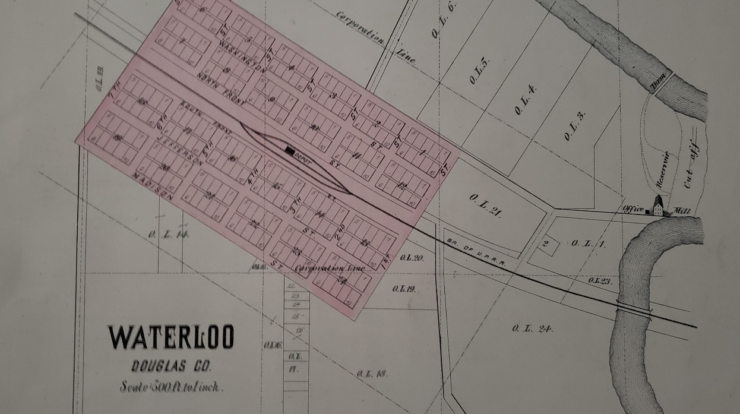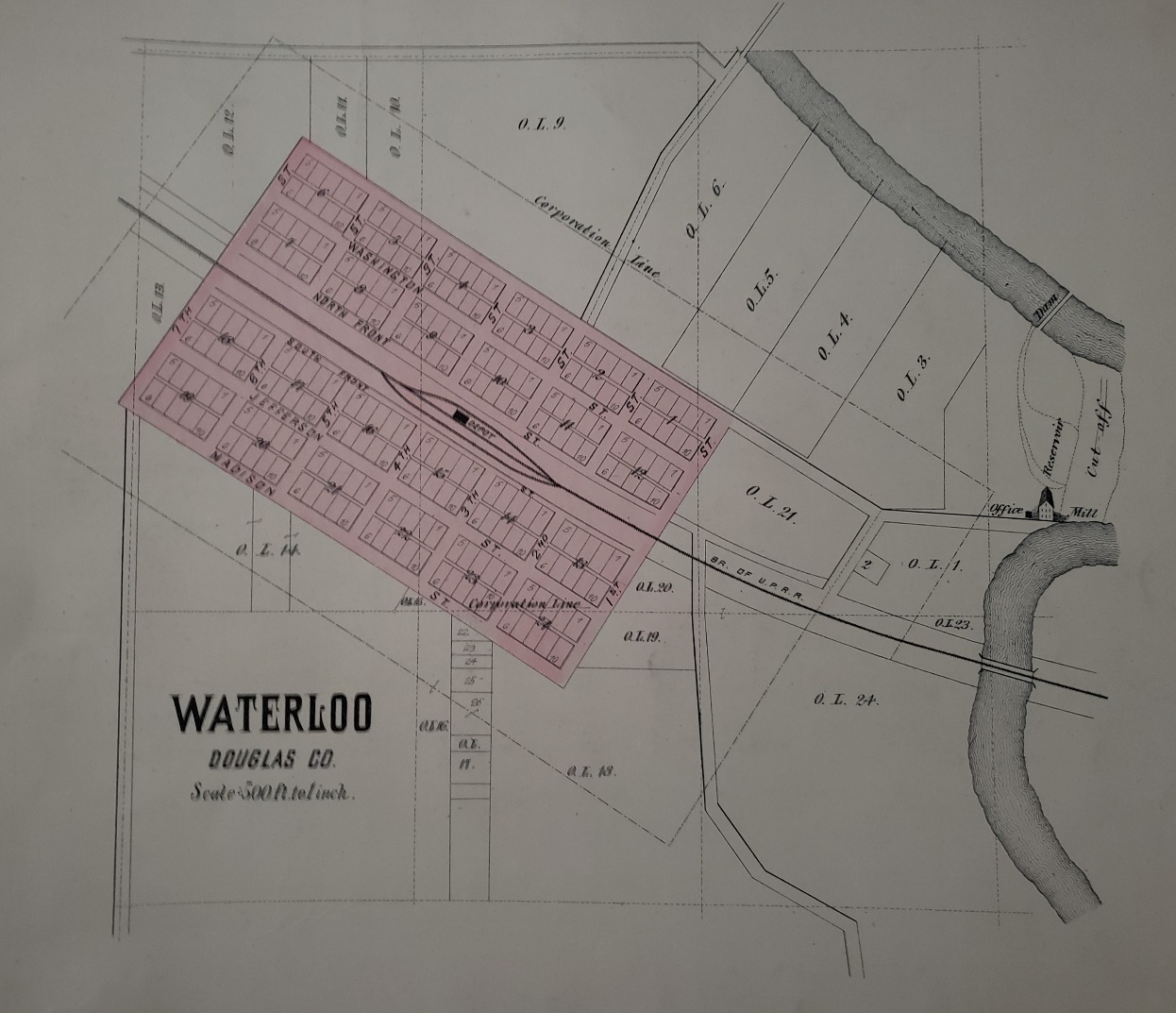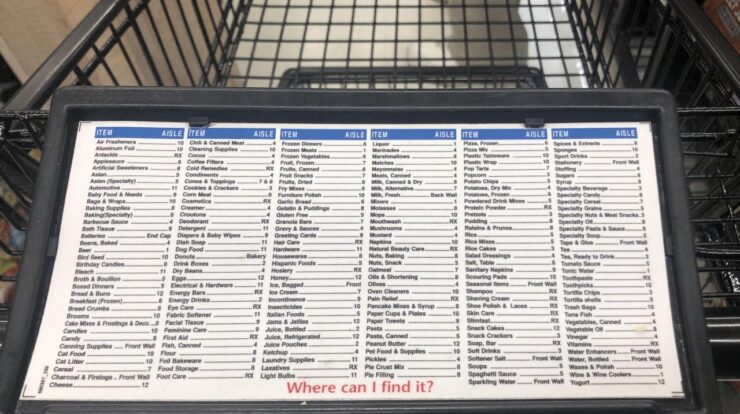
Nestled amidst the rolling hills of Nebraska, Waterloo Nebraska emerges as a town steeped in history, vibrant with community spirit, and poised for economic growth. From its humble beginnings as a railroad stop to its present-day status as a thriving hub, Waterloo’s story is a testament to the resilience and determination of its people.
At the heart of Waterloo lies a deep sense of community, fostered through local events, festivals, and organizations. The town’s schools and recreational opportunities provide a nurturing environment for its residents, while major industries and businesses offer diverse employment opportunities.
Waterloo, Nebraska: A Historical and Vibrant Community
Nestled in the rolling hills of eastern Nebraska, Waterloo is a charming town steeped in history and brimming with community spirit. Founded in 1866, the town played a pivotal role in the westward expansion of the United States and continues to thrive as a hub for agriculture and industry.
Historical Significance of Waterloo, Nebraska
Founding and Early History
Waterloo was established in 1866 by a group of settlers from Ohio and Iowa. The town was named after the famous battleground in Belgium, where Napoleon Bonaparte was defeated. In its early years, Waterloo served as a stagecoach stop along the Oregon Trail and a trading center for settlers moving west.
Role of the Union Pacific Railroad
The arrival of the Union Pacific Railroad in 1869 transformed Waterloo into a major transportation hub. The railroad connected the town to Omaha and the East Coast, facilitating the shipment of agricultural products and manufactured goods. Waterloo became a bustling center of commerce and a gateway to the vast western territories.
Notable Historical Events and Figures
Waterloo has witnessed several notable historical events. In 1872, the town was the site of a major railroad strike that led to the establishment of the Knights of Labor, one of the first national labor unions in the United States.
The town also played a role in the Populist movement of the late 19th century, which advocated for economic reforms to benefit farmers and workers.
Geographic and Demographic Overview
Location and Map
Waterloo is located in eastern Nebraska, approximately 40 miles west of Omaha. The town is situated on the Elkhorn River and is surrounded by rolling hills and fertile farmland.
Population and Demographics
As of 2020, Waterloo had a population of approximately 1,200 residents. The town’s population is primarily white, with a small Hispanic and African American population. The median age in Waterloo is 38.5 years, slightly higher than the national average.
Natural Features and Landmarks
Waterloo is located in the heart of the Great Plains, known for its vast grasslands and rolling hills. The Elkhorn River flows through the town, providing recreational opportunities and supporting the local ecosystem. The surrounding area is home to several parks and nature preserves, offering hiking, fishing, and wildlife viewing opportunities.
Community and Culture

Community Spirit and Sense of Place
Waterloo is a close-knit community with a strong sense of place. Residents take pride in their town and are actively involved in local organizations and events. The town hosts a variety of annual festivals and celebrations, including the Waterloo Summerfest and the Elkhorn Valley Fair.
Local Events, Festivals, and Traditions
Waterloo offers a vibrant cultural scene. The town hosts several annual events, including the Waterloo Summerfest, a three-day celebration featuring live music, food, and family-friendly activities. The Elkhorn Valley Fair is another popular event, showcasing local agriculture, livestock, and crafts.
Community Organizations, Schools, and Recreational Opportunities
Waterloo is home to a variety of community organizations, including the Waterloo Historical Society, the Waterloo Lions Club, and the Waterloo Chamber of Commerce. The town also has a strong educational system, with a public elementary school and a high school.
Waterloo offers several recreational opportunities, including a community center, a swimming pool, and a park system.
Economic Landscape
Major Industries and Businesses
Agriculture remains the backbone of Waterloo’s economy. The town is surrounded by fertile farmland, and many residents are employed in farming or related industries. Other major industries in Waterloo include manufacturing, transportation, and retail.
Employment Opportunities and Economic Growth Potential
Waterloo offers a variety of employment opportunities in various sectors. The town is home to several manufacturing plants, transportation companies, and retail businesses. Waterloo has experienced steady economic growth in recent years, driven by the expansion of the manufacturing and transportation sectors.
Unique Economic Initiatives and Development Strategies
Waterloo has implemented several unique economic initiatives to support local businesses and promote economic development. The town has established a tax increment financing (TIF) district to encourage redevelopment in the downtown area. Waterloo also offers a variety of incentives to attract new businesses and expand existing ones.
Notable Attractions and Points of Interest
Must-Visit Attractions and Landmarks
Waterloo is home to several must-visit attractions and landmarks. The Waterloo Depot Museum showcases the town’s railroad history and features a collection of historic artifacts. The Elkhorn River State Park offers scenic hiking trails, fishing opportunities, and a campground.
Detailed Descriptions and Historical Significance
The Waterloo Depot Museum is housed in the original Union Pacific Railroad depot, built in 1869. The museum features exhibits on the history of the railroad in Waterloo and the role it played in the development of the town. The Elkhorn River State Park is a 260-acre park located along the Elkhorn River.
The park offers a variety of recreational opportunities, including hiking, fishing, camping, and picnicking.
Itinerary or Walking Tour
A suggested itinerary or walking tour of Waterloo’s highlights could include a visit to the Waterloo Depot Museum, a stroll through the historic downtown area, and a hike along the Elkhorn River at the Elkhorn River State Park.
Transportation and Infrastructure
Transportation Options, Waterloo nebraska
Waterloo is accessible by road, rail, and air. The town is located on Highway 30, which connects it to Omaha and other major cities in Nebraska. Waterloo is also served by the Union Pacific Railroad, which provides freight and passenger service.
The nearest airport is the Omaha Eppley Airfield, located approximately 40 miles east of Waterloo.
Accessibility and Connectivity
Waterloo is well-connected to surrounding areas. The town’s central location on Highway 30 provides easy access to Omaha and other major transportation hubs. The Union Pacific Railroad also provides reliable freight and passenger service to Waterloo.
Major Infrastructure Projects and Developments
Waterloo has recently invested in several major infrastructure projects. The town has upgraded its water and sewer systems, and is currently working on a project to improve the town’s streets and sidewalks. Waterloo is also exploring the possibility of expanding its public transportation system.
Wrap-Up: Waterloo Nebraska
As Waterloo Nebraska continues to evolve, it embraces its rich heritage while forging ahead with a vision for a prosperous future. Its commitment to community, economic development, and infrastructure improvements ensures that this charming town remains a beacon of progress and a testament to the enduring spirit of Nebraska.
Detailed FAQs
What is the significance of the Union Pacific Railroad to Waterloo Nebraska?
The Union Pacific Railroad played a pivotal role in the development of Waterloo Nebraska, connecting it to major markets and facilitating the growth of its economy.
What are some notable attractions in Waterloo Nebraska?
Waterloo Nebraska boasts several attractions, including the Waterloo Depot Museum, the Victorian Rose Garden, and the Waterloo Golf Course.
What are the major industries in Waterloo Nebraska?
Agriculture, manufacturing, and healthcare are among the major industries in Waterloo Nebraska.





